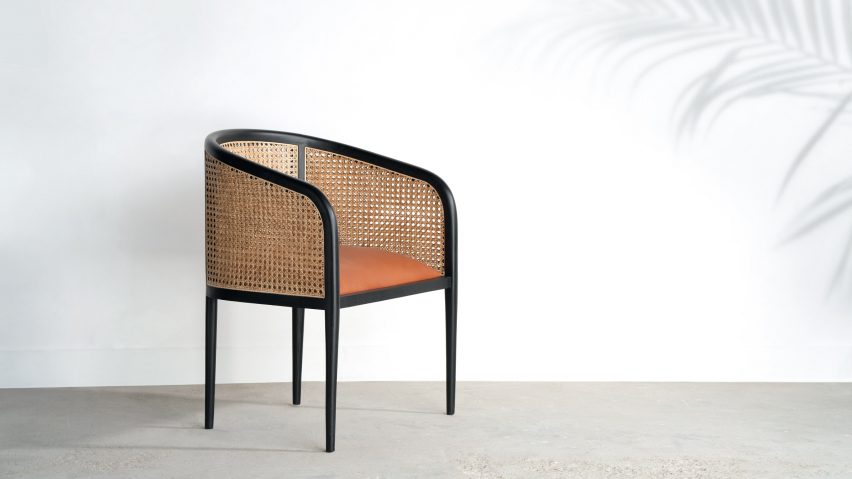
Young designer Jehanara Knowles launches furniture brand Kam Ce Kam
Traditional Indian crafts are celebrated in the inaugural collection from Kam Ce Kam, a furniture brand launched by 27-year-old designer Jehanara Knowles during London Design Festival.
Knowles puts a contemporary spin on established crafts like cane weaving and stone carving with her designs. Her aim is to open up these traditional manufacturing processes to a wider audience.
"India is a country of vast talent and rich materials," said the designer.
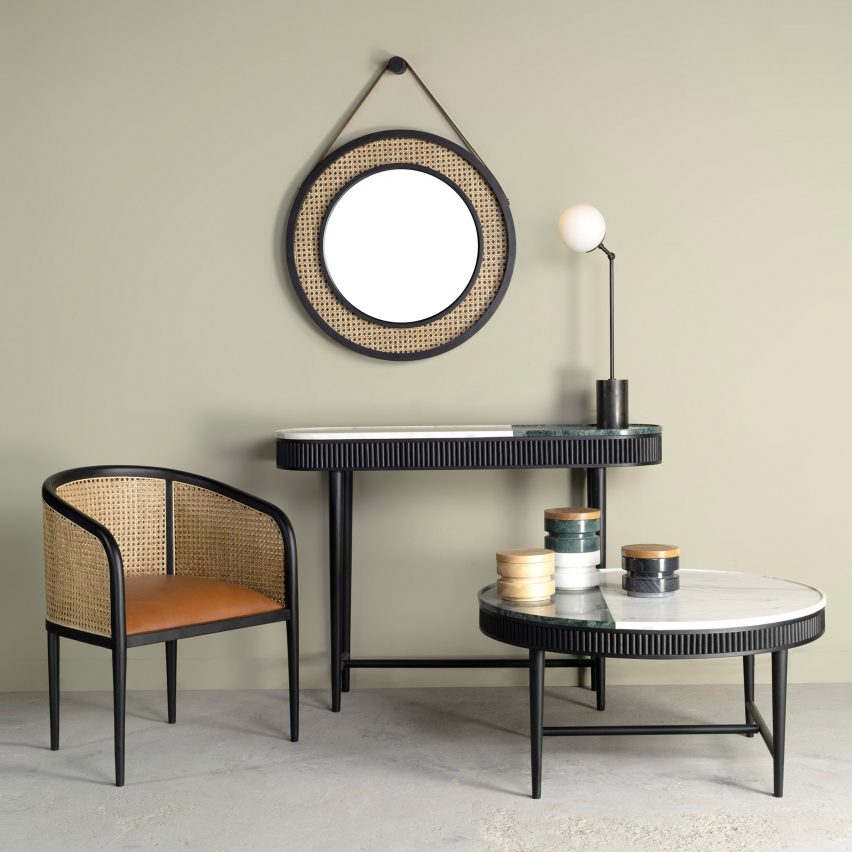
"Often you will find a cane weaver that comes from generations of cane weavers, a potter who comes from a village of potters, or a timber carver who has learnt the trade from their father," she told Dezeen.
"The resource of making and materiality in India is immense – I'm surprised that more people aren't celebrating this."
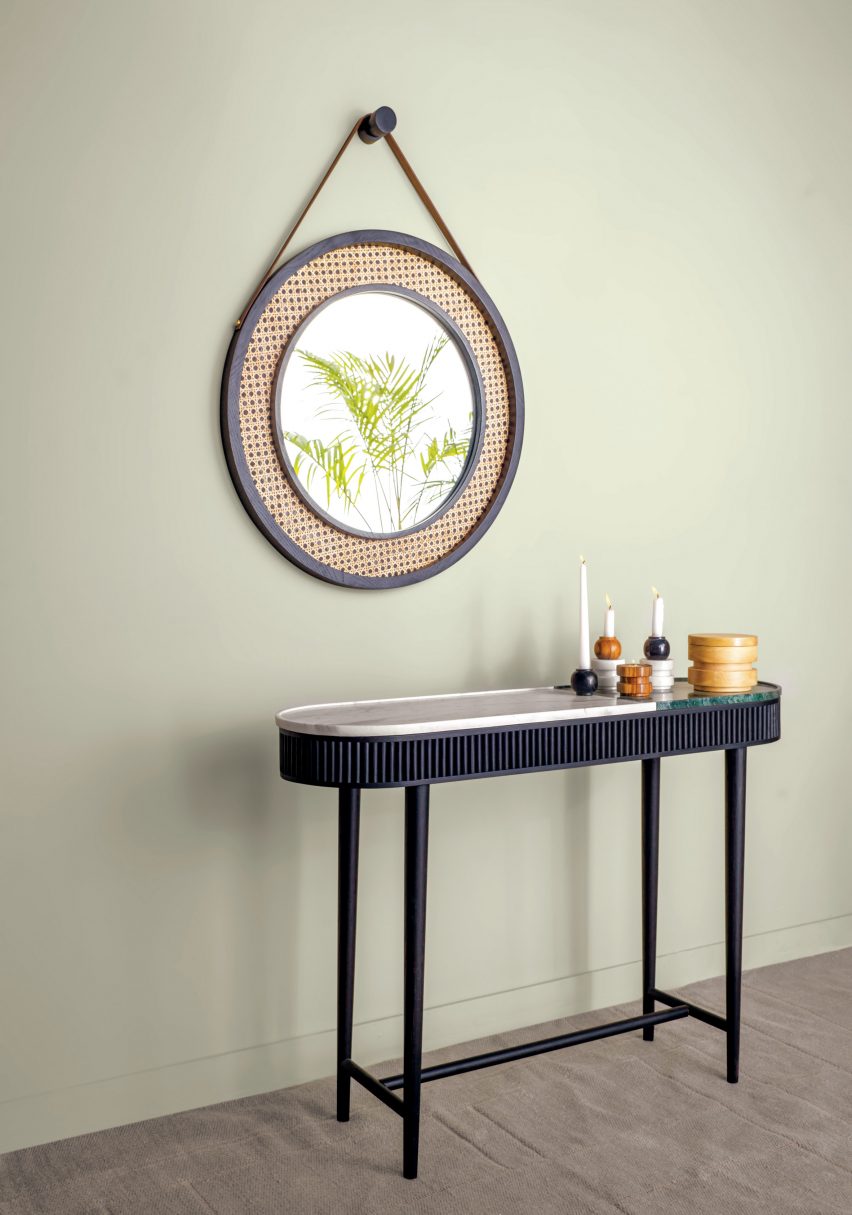
Knowles grew up between New Delhi and London, so her designs reflect her own multi-cultural heritage.
"Our homes were always an eclectic mix of contemporary and traditional design," she explained. "I was surrounded by beautiful colonial pieces, furniture from designers like Lutyens, antiques and intricate materials."
"My style is an amalgamation of all of this, with clean line geometry, creating interest through materiality and detailing."
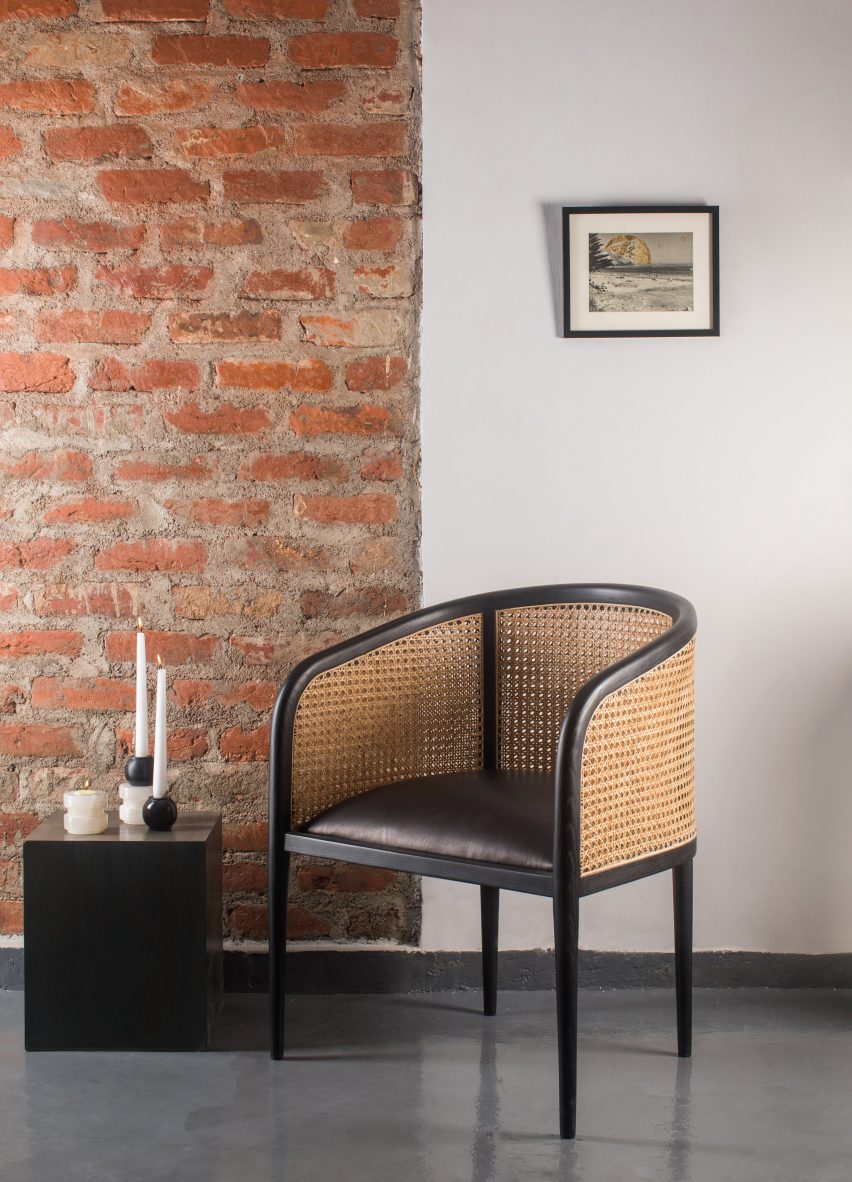
The designer spent the first few years of her career working in architecture and interior design, but increasingly found herself being asked to create bespoke furniture designs. A project focused on Indian craft led her to start her own company.
The name, Kam Ce Kam, is a Hindu phrase that translates as "at the very least". Knowles chose the name as she sees the brand as a starting point of new possibilities for Indian craftspeople.
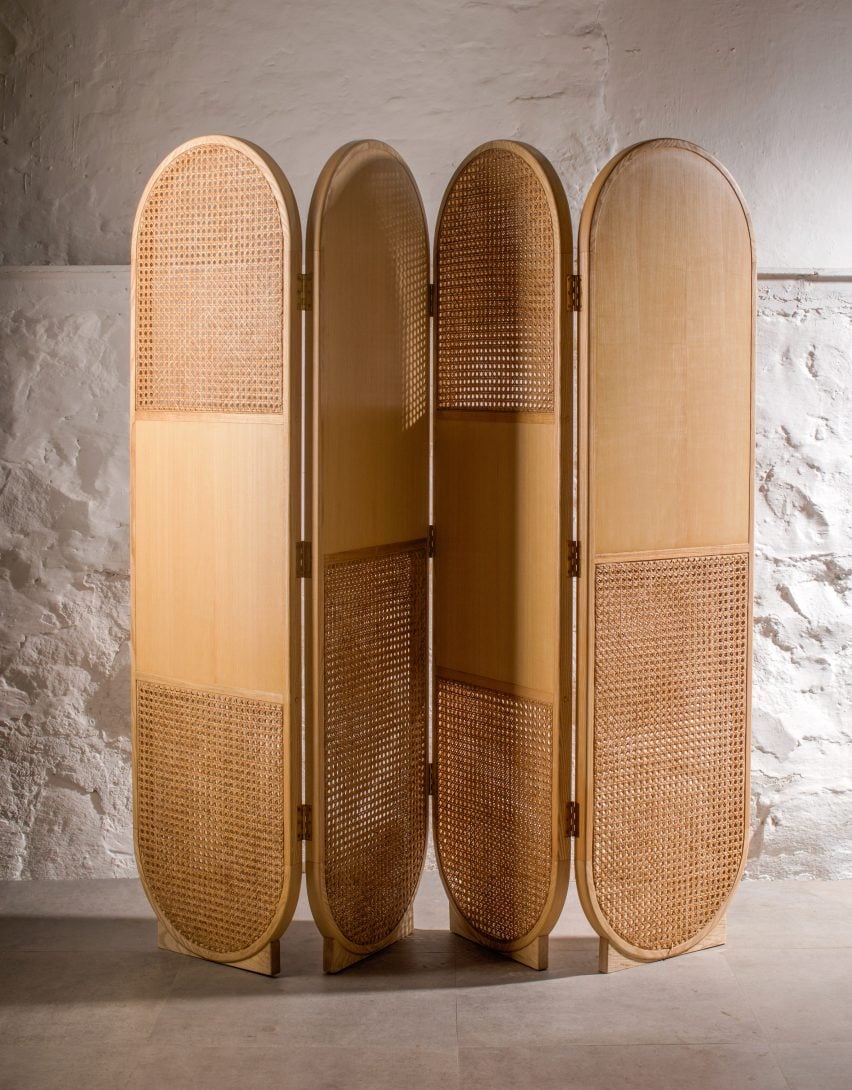
Each piece in her inaugural collection is manufactured in India, by a team of 30 specialist artisans.
The Divaar mirror, Sola mirror and Mera chair all celebrate traditional bamboo cane weaving. This handmade textile gives a textural quality to the wood-framed pieces.
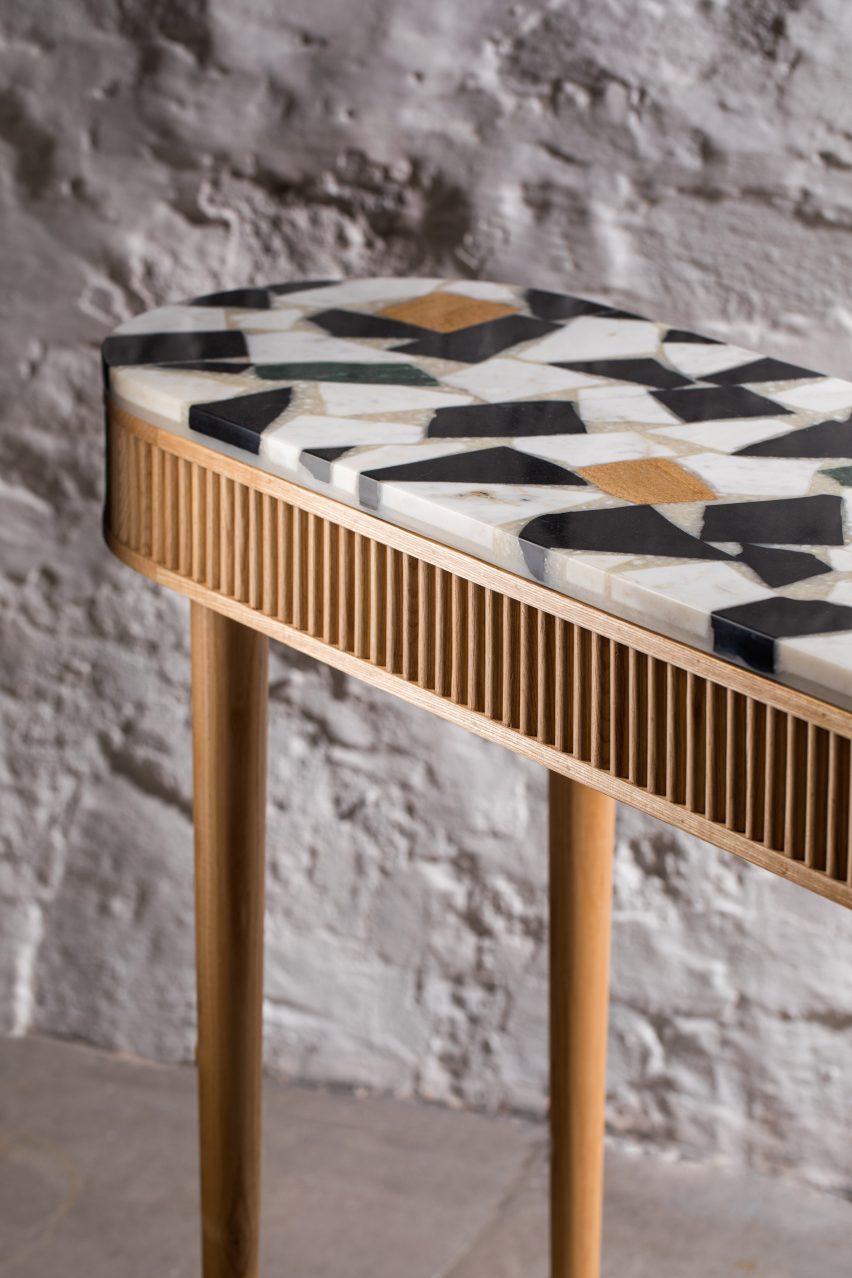
The Mausam console and coffee table feature terrazzo – a common material in India – made using waste stone and marble. One design brings together two classic marble varieties in a two-tone effect, while another has a more random aesthetic.
Aag is a series of sculptural candle holders made using alabaster and soapstone. They are crafted using a traditional form of stone carving.
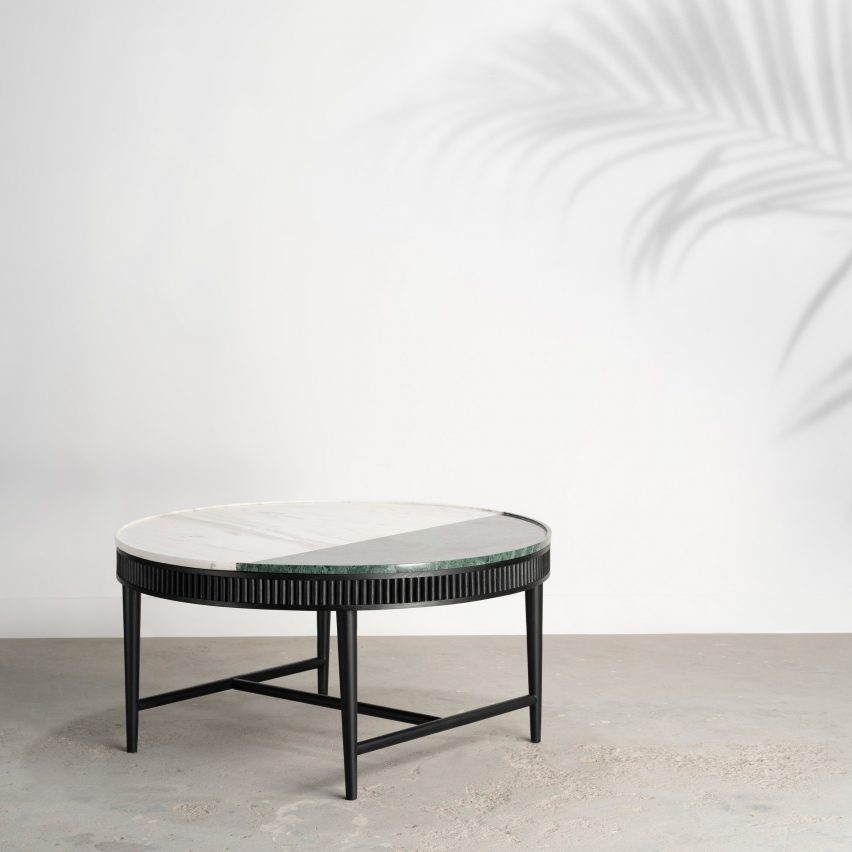
The collection is completed by Tera, a piece developed for Kam Ce Kam by designer Mike Knowles, who is Jehanara's father. It references Danish midcentury design, yet its proportions have less of a European feel to them.
Like most of the other pieces in range, its ash frame was manufactured through a specific process of timber carving.
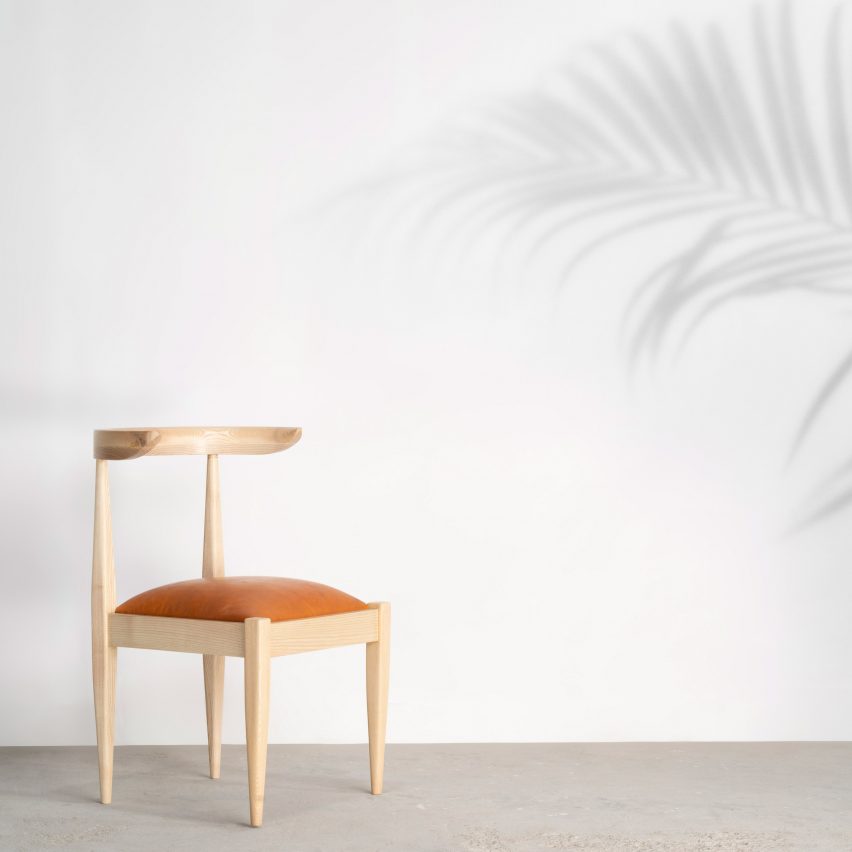
The collection was on show at a pop-up on Redchurch Street during London Design Festival earlier this month.
Knowles hopes to make it available to a wider audience very soon, and also had plans to expand the range with carpets and lighting.
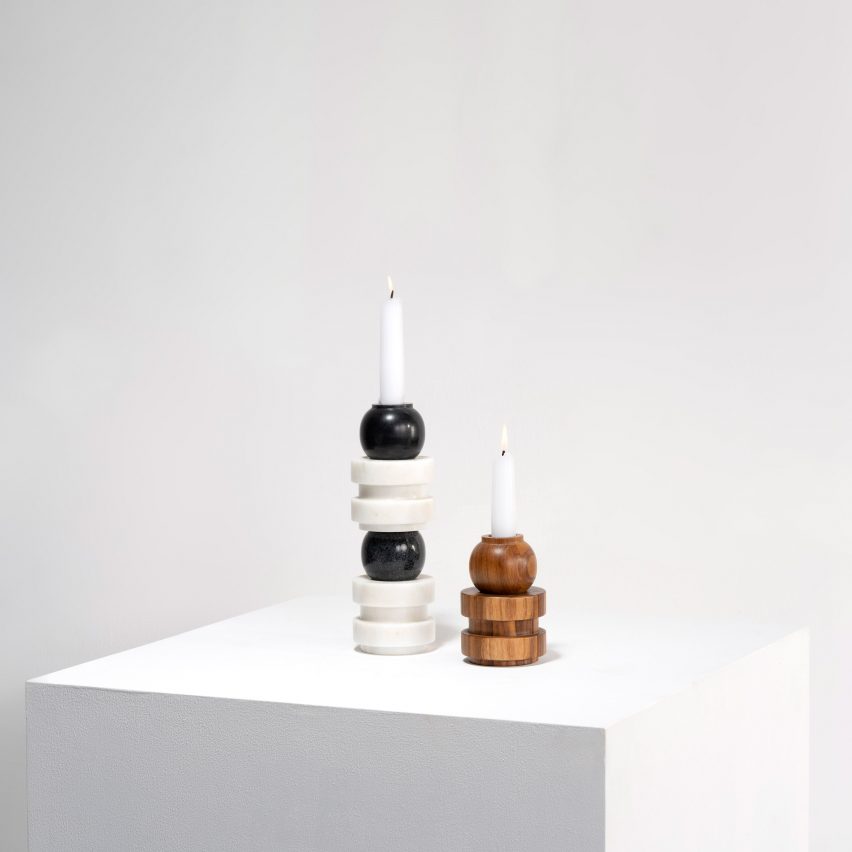
"We hope to grow a community of people with an appreciation for contemporary, hand-made products from India," she said.
"To do this, we will continue to design new collections which explore and expand into different elements of hand-made craft."
Other furniture collections unveiled at the design festival included London designer Lara Bohinc's space-themed collection and Camille Walala's street furniture.